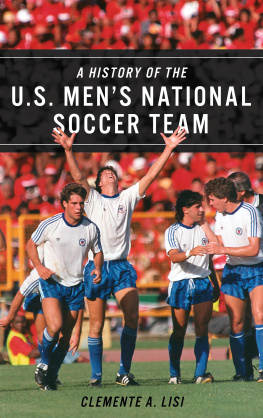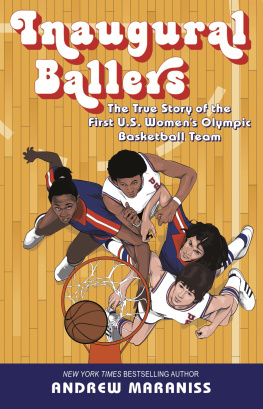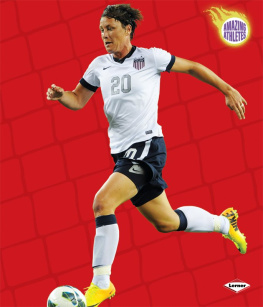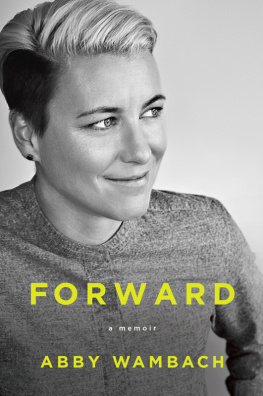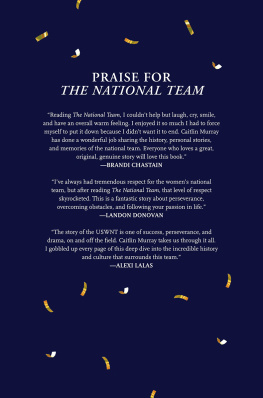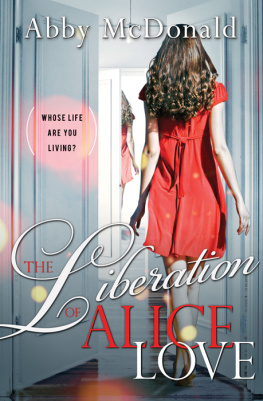Thank you for downloading this Simon & Schuster eBook.
Join our mailing list and get updates on new releases, deals, bonus content and other great books from Simon & Schuster.
C LICK H ERE T O S IGN U P
or visit us online to sign up at
eBookNews.SimonandSchuster.com

Simon & Schuster
1230 Avenue of the Americas
New York, NY 10020
www.SimonandSchuster.com
Copyright 2016 by Molly Schiot
All rights reserved, including the right to reproduce this book or portions thereof in any form whatsoever. For information address Simon & Schuster Subsidiary Rights Department, 1230 Avenue of the Americas, New York, NY 10020
First Simon & Schuster hardcover edition October 2016
SIMON & SCHUSTER and colophon are registered trademarks of Simon & Schuster, Inc.
For information about special discounts for bulk purchases, please contact Simon & Schuster Special Sales at 1-866-506-1949 or .
The Simon & Schuster Speakers Bureau can bring authors to your live event. For more information or to book an event contact the Simon & Schuster Speakers Bureau at 1-866-248-3049 or visit our website at www.simonspeakers.com.
Interior design by Joy OMeara
Cover Image of Wilma Rudolph Mondadori Portfolio/Getty Images
Wilma Rudolph used with permission from the estate of Wilma Rudolph
Title IX Button Images Courtesy of Margaret Dunkle
Library of Congress Cataloging-in-Publication Data
Names: Schiot, Molly, author.
Title: Game changers : the unsung heroines of sports history / Molly Schiot.
Description: New York : Simon & Schuster, 2016. | Includes bibliographical references.
Identifiers: LCCN 2016017922 | ISBN 9781501137099 (hardback) | ISBN 9781501137105 (trade paperback)
Subjects: LCSH: Women athletesBiography. | Women athletesHistory20th century. | BISAC: PHOTOGRAPHY / Subjects & Themes / Sports. | SPORTS & RECREATION / History.
Classification: LCC GV697.A1 S416 2016 | DDC 796.0922 [B]dc23
LC record available at https://lccn.loc.gov/2016017922
ISBN 978-1-5011-3709-9
ISBN 978-1-5011-3711-2 (ebook)
This book is dedicated to all the women who were forever told no.
Judi Oyama
It is not our differences that divide us. It is our inability to recognize, accept, and celebrate those differences.
Audre Lorde
AUTHORS NOTE
This book is about womens stories.
When I was a kid, I thought only men could be champions. Slap Shot. Raging Bull. Rocky. Youngblood. The Karate Kid. Breaking Away. Hoop Dreams. Point Break. Chariots of Fire . These were the fast-paced, adrenaline rich, sweaty-as-heck films that shaped me. In 1985, there were no films that featured strong female boxers running up the steps of the Philadelphia Museum of Art, no training sequences with a girl version of Ralph Macchio, no images of girl gangs shredding down Los Angeles streets under floodlights on their worn-in skateboards. Growing up in New England, my screen flashed to the Boston Bruins, the Boston Celtics, the New England Patriots and, of course, always PBS. The only option Iand millions of other young girlshad for my role models, my heroes, were people I couldnt really relate to. Outside of the Olympics, I rarely saw a woman in a uniform or holding a trophy. When youre a kid without cable in a small town, names like Billie Jean King and Althea Gibson might be overheard once or twice, but no photos or stories seemed to exist to make them anything more than just a few syllables strung together.
Thankfully things are gradually improving. Were seeing women running for public office, rising through the corporate ranks, and fighting on the front lines for equality. Yet there is still a colossal lack of attention paid to female athletes, journalists, coaches, and their achievements. I wanted to change that.
I am neither a historian nor am I an expert. I am a director in Hollywood who wanted to tell stories that mattered, who tried to pitch documentaries about female athletes to a major sports network. To me, groups like the Wake-Robin Golf Club, founded by Helen Webb Harris in the 1930s, were the stuff of legend. Harris and her friends had come together to find a place to play a game they loved, but there was just one problem: they were African-American, and the sport wouldnt have them. They drafted letters and petitioned public courses to desegregate, but to no avail. The compromise was the option to build a nine-hole course on the site of an abandoned trash dump, the furthest thing from the ideal, manicured green sprawl. They retrieved balls from under the old tires or rusty tin cans covering the property, which was described as having a raw sewage ditch running through it. This tale had everything an audience would be looking for: great characters and a slice of history that showcased good old American triumph, resilience, and perseverance. Development executives saw it differently. When I presented my idea, they said, Sorry, but keep looking.
So I did.
My research began at the Los Angeles Public Library, where I would comb through pages of old books in the sports section for days on end, alone except on the days when I was visited by Rodney, a homeless man who could reciteon commandall the records of every man and woman who competed in the 1984 Summer Olympics. When I had exhausted the librarys image archives, I bid farewell to my new friend and headed to the LA84 Foundations library, a true hidden gem in the city of Los Angeles that houses the largest sports research library in North America. It sits in the West Adams district, surrounded by the largest grouping of historic homes west of the Mississippi, and burns an Olympic-like flame in the courtyard. As I dove deeper into the materials I found there, I learned about Rena Rusty Kanokogi, Margaret Dunkle, Laura Thornhill-Caswell, Dr. Bernice Bunny Sandler, Junko Tabei, and hundreds of other women. When I shared these stories at dinner tables and coffee shops, both men and women would reply, shocked, How on earth do we not know these womens names? I would also respond with a Well, how would you?!
One day, I discovered the LA84s entire collection of womenSports magazine, which was launched in partnership with the Womens Sports Foundation (started by Billie Jean King) and assisted by Ms. magazine cofounders Pat Carbine and Gloria Steinem. This treasure trove of images inspired me to pull these stories out of the dark. I now had the pictures to match the text, and knew I had to share them with the world.
In 2013 I started an Instagram account called @theunsungheroines, posting a photo and story every day about the women Id found: women disqualified from tennis tournaments because of the color of their skin; women who changed their physical appearances to pass as men so they could step up to the plate and hit balls into the outfield; the first black woman to win a gold medal, who returned home and was congratulated publicly by a white mayor who still would not shake her hand because Thats just the way it was at the time. All were strong, smart, and sacrificed to do what they loved.
And now they are here.
I dont think I quite understood the absence of women in sports history when I was a kid. Its not until I started this project that I, a proud feminist, came to the uncomfortable realization that these names have always been there, but we havent recognized them; it baffles me that the real Wake-Robin Club is less known than the fictional Bad News Bears. With this book, I hope to change that, even if just a little. It is our job to remember these women and tell their stories. Of course, there are many more game changers, known and unknown, than are included here. Think of this as a primer. Since this began as a personal project, many of the women featured are ones that I did not know about and wanted to investigate further. Others, in my opinion, truly changed the direction and face of the sport they played, and I wanted to reinforce their influence. I tried my best to hit all ends of the spectrum, from sport to nationality and time period, and use lesser-known, more candid images than were used to seeing flashed across a front page. I welcome and challenge you, reader, to learn as much as you can about them, and to find those who have yet to be discovered. Every field we step on, every finish line we cross, is for them. I wish I could put hundreds more women between these covers, because they deserve to be celebrated.


